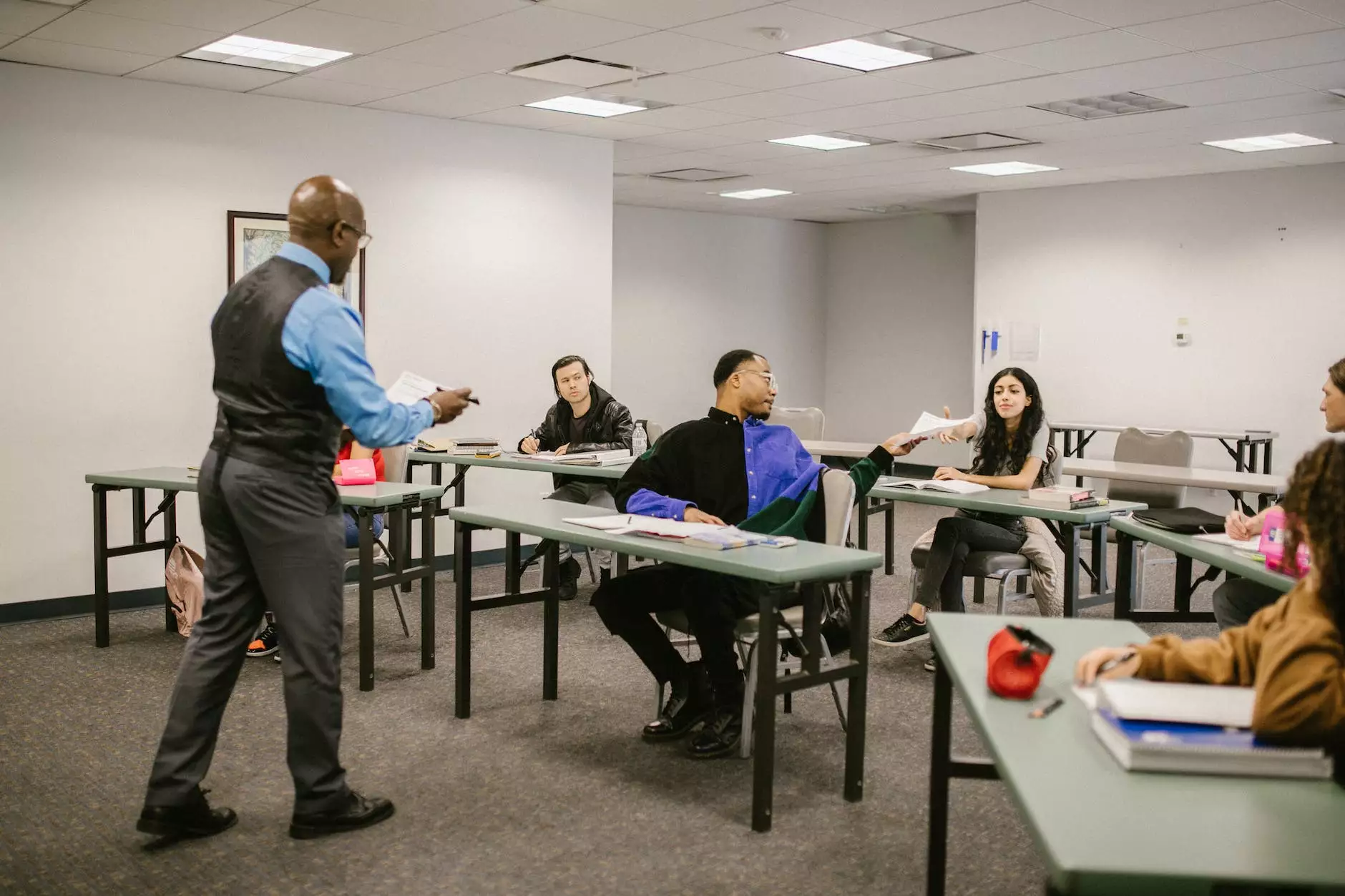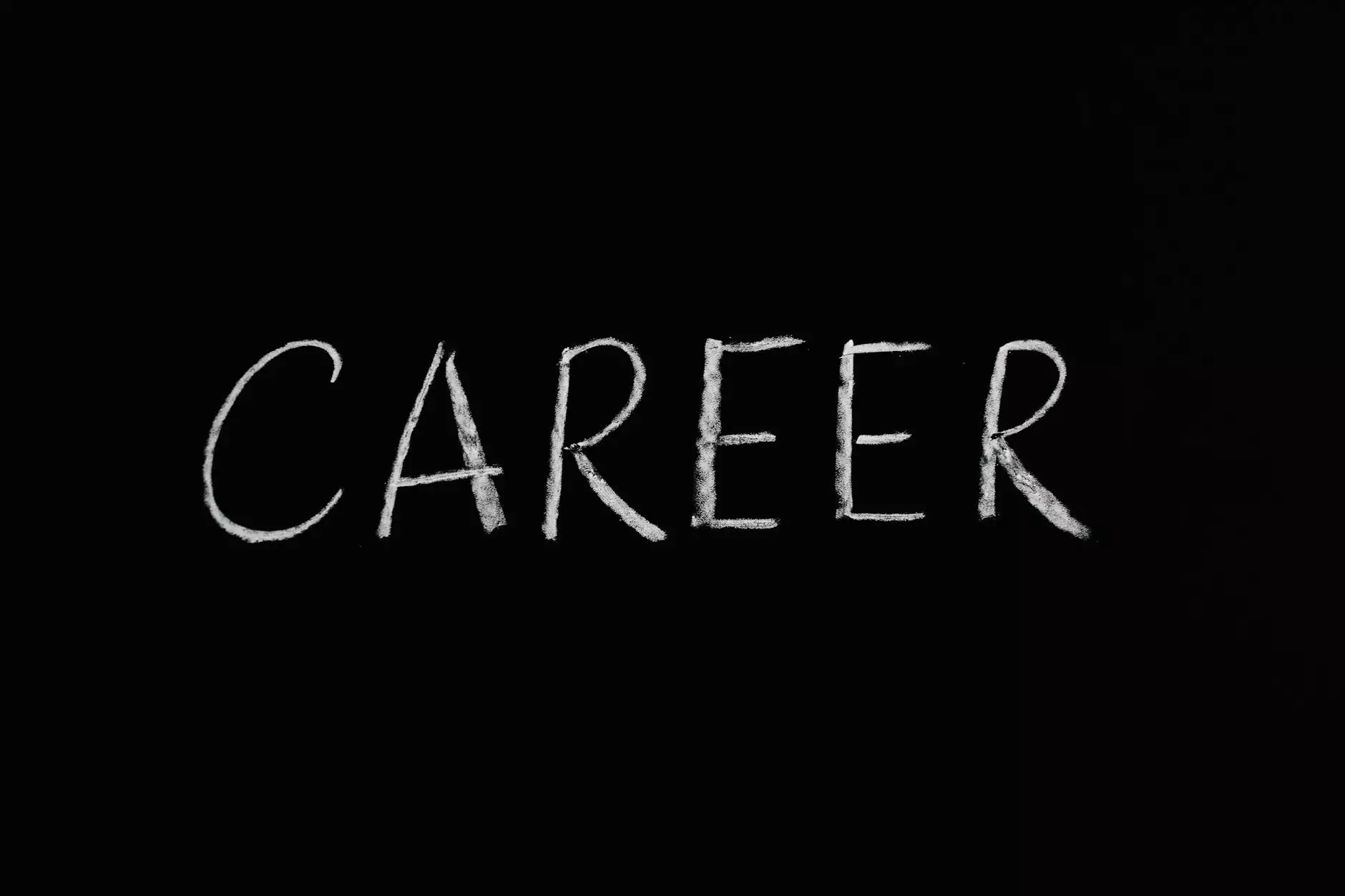Mythbusting Transition Assessment!

Welcome to Fountain of Hope's comprehensive guide on debunking the myths surrounding transition assessment. In the field of education and planning for the future, it is crucial to have a clear understanding of transition assessment and dispel any misconceptions that may hinder successful outcomes.
The Importance of Transition Assessment
Transition assessment plays a significant role in guiding individuals through various stages of their lives, particularly during critical transitions such as moving from high school to post-secondary education, employment, or independent living. It empowers individuals with disabilities to make informed choices, set goals, and develop pathways towards a successful future.
Myth: Transition Assessment is Only Relevant for Students with Disabilities
Reality: Transition assessment is not solely limited to students with disabilities. It is beneficial for all individuals seeking guidance and support during periods of transition. Whether you are a student with special needs or someone without disabilities, transition assessment helps identify strengths, interests, skills, and areas of improvement to make informed decisions about education and career paths.
Debunking Common Myths
Myth: Transition Assessment is a One-Time Event
Reality: Transition assessment is an ongoing process that evolves as individuals progress through different stages of their lives. It is not a one-time event but rather a continuous evaluation of skills, goals, and opportunities. By reassessing regularly, individuals can adapt their plans and strategies to best suit their changing needs.
Myth: Transition Assessment is Only Relevant for Students Approaching Graduation
Reality: Transition assessment should ideally begin well in advance of high school graduation. Starting the assessment process early enables individuals to explore different possibilities, develop essential skills, and set achievable goals. Early intervention allows for adequate time to address any challenges and ensures a smoother transition into post-secondary education or employment.
Myth: Transition Assessment is Solely School's Responsibility
Reality: While schools play a vital role in conducting transition assessments, the responsibility should be shared among students, families, educators, and community partners. Collaboration and open communication are key in ensuring a holistic approach to transition planning. Engaging all stakeholders helps leverage available resources, expertise, and support networks to create a comprehensive plan for success.
Myth: Transition Assessment Only Focuses on Academic Skills
Reality: Transition assessment encompasses a wide range of domains beyond academics. While academic skills are certainly important, transition assessments also evaluate vocational aptitudes, independent living skills, social skills, and emotional well-being. Gaining insights into these areas allows for a more holistic approach to planning and ensures a well-rounded transition plan.
Benefits of Accurate Transition Assessment
Now that we have debunked some common myths, let's explore the benefits of accurate and comprehensive transition assessment:
1. Individualized Goal Setting
Accurate transition assessments provide individuals with a clear understanding of their abilities, strengths, and areas for improvement. This knowledge helps set realistic and achievable goals that align with their personal aspirations and abilities.
2. Informed Decision Making
By understanding their own skills and interests, individuals can make informed decisions about their education, career paths, and lifestyle choices. Transition assessments guide individuals towards options that align with their strengths and offer a higher chance of success and fulfillment.
3. Tailored Support and Intervention
Transition assessments provide valuable insights that inform the development of personalized support and intervention plans. By understanding an individual's specific needs, educators, support systems, and community partners can offer tailored interventions and resources to enhance skill development and overcome challenges.
4. Enhanced Self-Advocacy Skills
Transition assessment promotes self-awareness and self-advocacy skills. By understanding strengths, interests, and challenges, individuals can effectively communicate their needs and aspirations to advocate for themselves, leading to increased independence and self-confidence.
5. Collaboration and Coordination
A comprehensive transition assessment requires collaboration among various stakeholders. This collaboration fosters a coordinated approach to transition planning, leveraging the expertise and resources of different individuals, organizations, and systems to ensure a seamless transition process.
Conclusion
Fountain of Hope aims to demystify the world of transition assessment and debunk common myths surrounding this crucial process. By understanding the importance of accurate transition assessment and dispelling misconceptions, individuals can embark on a well-informed journey towards a successful future. Together, we can create a smooth transition process that empowers individuals to achieve their goals and aspirations.









